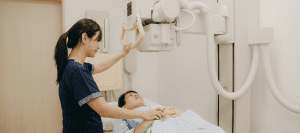Cancer Prevention Through Early Detection: Why Screenings Matter
As you navigate the complexities of health and wellness, one crucial aspect often overlooked is the importance of regular cancer screenings. These preventive measures serve as your first line of defense against a formidable foe. By detecting cancer in its earliest stages, you significantly increase your chances of successful treatment and recovery. However, many individuals delay or avoid screenings due to fear, inconvenience, or a lack of understanding about their significance. This article aims to shed light on why cancer screenings matter and how they can be a powerful tool in your arsenal for maintaining optimal health and longevity. Empower yourself with knowledge and take control of your well-being through early detection.
What is Cancer Prevention and Early Detection?
Cancer prevention and early detection are crucial strategies in the fight against cancer. Prevention focuses on reducing cancer risk through lifestyle changes and avoiding known carcinogens. Early detection, on the other hand, aims to identify cancer in its earliest stages when treatment is most effective. Regular screenings play a vital role in early detection, increasing the chances of successful treatment and improving overall survival rates.
The Importance of Cancer Screenings
Cancer prevention through early detection is crucial for improving patient outcomes. Regular screenings can help identify cancer in its early stages, when treatment is often more effective. By detecting precancerous lesions or cancer before symptoms appear, screenings enable timely intervention and potentially save lives. However, it’s important to understand that while screenings offer benefits, they also carry risks such as false positives or overdiagnosis. Consult with your healthcare provider to determine which screenings are appropriate for you based on your individual risk factors and medical history.
Types of Cancer Screenings
Cancer prevention through screening is crucial for early detection. Common screenings include mammograms for breast cancer, Pap and HPV tests for cervical cancer, and colonoscopies for colorectal cancer. Low-dose CT scans are recommended for lung cancer in high-risk individuals. These tests aim to identify cancer before symptoms appear, potentially improving treatment outcomes and survival rates.
Benefits of Early Cancer Detection
Early cancer detection through regular screenings is a cornerstone of effective cancer prevention. According to the World Health Organization, timely diagnosis provides the best chance for successful treatment and improved outcomes. Early detection can significantly boost survival rates – for instance, almost all women with breast cancer survive for 5 years or more if diagnosed at the earliest stage, compared to only 30% when detected late. Additionally, early-stage cancers often require less invasive treatments, potentially reducing both physical and financial burdens on patients.
Cancer Prevention Through Vaccination
Vaccination plays a crucial role in cancer prevention, offering a powerful tool against certain types of cancer. The HPV vaccine stands out as a prime example, preventing cervical, vaginal, and other cancers caused by human papillomavirus. Similarly, the hepatitis B vaccine helps prevent liver cancer. While no universal cancer vaccine exists yet, these targeted immunizations demonstrate the potential of early detection and prevention strategies in the fight against cancer.
Overcoming Barriers to Cancer Screening
Education and Awareness
Cancer prevention through early detection is crucial, yet many face barriers to screening. Healthcare providers play a vital role in educating patients about the importance of regular screenings. By addressing fears and cultural factors, they can encourage participation. Community health workers can also bridge gaps, providing culturally appropriate information and facilitating access to services.
Improving Accessibility
Ensuring cost is not a barrier is essential for increasing screening rates. The Affordable Care Act has helped, but out-of-pocket expenses for follow-up testing can still deter patients. Implementing self-sampling options for certain cancers can improve accessibility, especially for those with transportation challenges or discomfort with traditional methods.
Cancer Prevention and Early Detection FAQs
What are the key actions for cancer prevention?
According to the American Cancer Society, there are two crucial steps for cancer prevention: reducing harmful everyday habits that increase cancer risk and following recommended screening guidelines. Regular cancer screenings play a vital role in early detection, potentially saving thousands of lives by identifying cancer when it’s most treatable.
How do multi-cancer early detection tests work?
Multi-cancer early detection (MCED) tests are an emerging technology designed to complement existing single-cancer screenings. These tests analyze blood samples to identify potential signs of multiple cancer types simultaneously, often before symptoms appear. While promising, MCED tests are still undergoing clinical trials and are not yet covered by insurance.
Conclusion
As you consider your health priorities, remember that regular cancer screenings are a critical component of preventive care. By staying proactive and adhering to recommended screening schedules, you empower yourself to detect potential issues early when treatment outcomes are most favorable. Discuss appropriate screenings with your healthcare provider based on your age, risk factors, and family history. While the prospect of cancer can be daunting, knowledge truly is power when it comes to your health. Make screening part of your routine health maintenance, and encourage your loved ones to do the same. Your commitment to early detection today could save your life tomorrow.
Disclaimer: The content for this article is for informational purposes only and is not a substitute for professional medical advice, diagnosis, or treatment. Always consult your oncologist with any questions regarding a medical condition. Do not disregard medical advice or delay seeking it based on information from this site.

